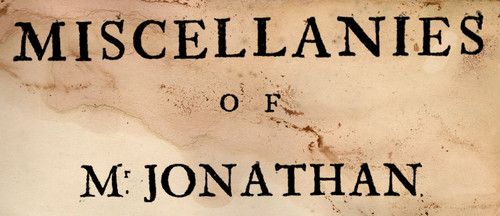 |

unearths some literary gems.
From My Discovery of England, by Stephen Leacock:
***They carry away with them their impressions of America, and when they reach England they sell them. This export of impressions has now been going on so long that the balance of trade in impressions is all disturbed. There is no doubt that the Americans and Canadians have been too generous in this matter of giving away impressions. We emit them with the careless ease of a glow worm, and like the glow-worm ask for nothing in return.***Or here, again, is a form of "impression" that recurs again and again-"At Cleveland I felt a distinct note of optimism in the air."This same note of optimism is found also at Toledo, at Toronto—in short, I believe it indicates nothing more than that some one gave the visitor a cigar.***This particular part of London is connected with the existence of that strange and mysterious thing called "the City." I am still unable to decide whether the city is a person, or a place, or a thing. But as a form of being I give it credit for being the most emotional, the most volatile, the most peculiar creature in the world. You read in the morning paper that the City is "deeply depressed." At noon it is reported that the City is "buoyant" and by four o'clock that the City is "wildly excited."***The Abbey, I admit, is indeed majestic. I did not intend to miss going into it. But I felt, as so many tourists have, that I wanted to enter it in the proper frame of mind. I never got into the frame of mind; at least not when near the Abbey itself. I have been in exactly that frame of mind when on State Street, Chicago, or on King Street, Toronto, or anywhere three thousand miles away from the Abbey. But by bad luck I never struck both the frame of mind and the Abbey at the same time.***It was understood that the main object of my trip to England was to find out whether the British people have any sense of humour. No doubt the Geographical Society had this investigation in mind in not paying my expenses.***Please note that roar at the end of the English personal anecdote. It is the sign that indicates that the story is over. When you are assured by the narrators that all the persons present "roared" or "simply roared," then you can be quite sure that the humorous incident is closed and that laughter is in place.***
|



